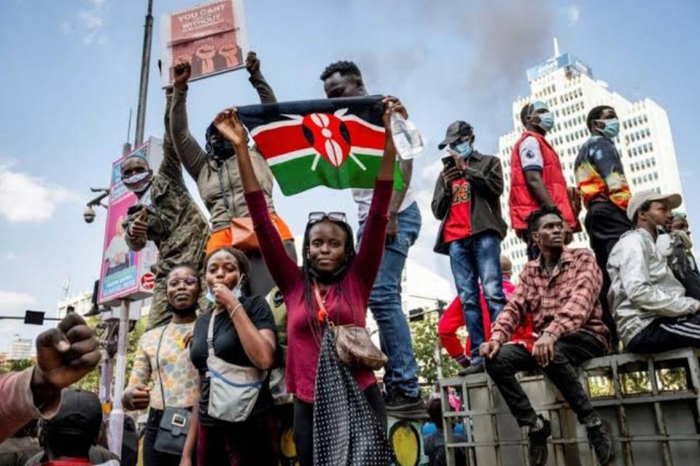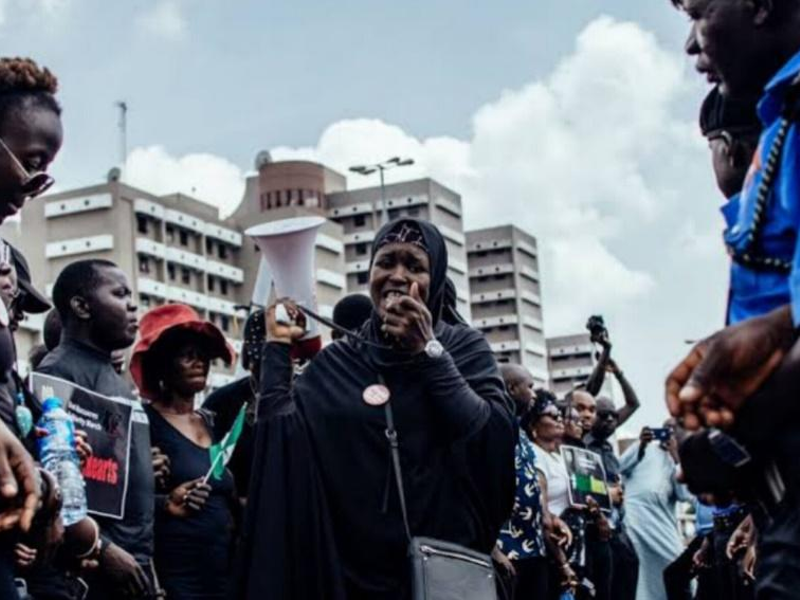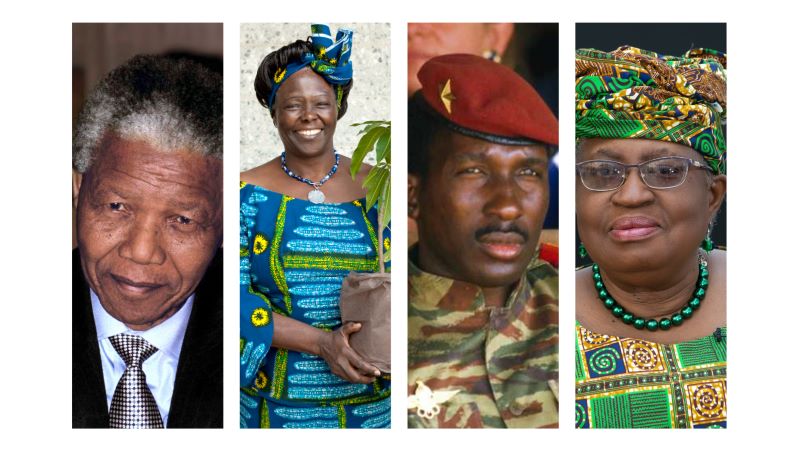Photo: X | Hamzat Lawal
On August 1st, 2024, Nigerian youths will once again take to the streets in a nationwide protest tagged #EndBadGovernance, echoing the fervent activism that has characterized the country’s recent history.
This mobilization is more than just a protest; it is a loud cry for structural change in the polity, echoing the fervor of the 2020 #EndSARS demonstrations.
Bearing similarities to the unwavering push for good governance as seen by the demonstrations of Kenyan youths over the strangulating policies of the President Ruto administration, there is a growing discontent among the young generation of Nigerians who feel shortchanged by years of irresponsible governance which have left the country teetering at the edge of economic collapse and with their future uncertain.
An Echoing Call for Justice
The upcoming protest is rooted in the yearning need of young Nigerians for good governance which many have found to be elusive more so with the country’s checkered history of military dictatorship and the recent return to civilian rule.
With rising unemployment, headline inflation at 34.2%, and food inflation at 40.9% for June according to the National Bureau of Statistics, thousands of young Nigerians seem eager for an open confrontation with the government whom they believe has shown no readiness to address the failing economy and the uncertainty that clouds their future.
Reminiscent of the #EndSARS campaign, in which thousands of young Nigerians demonstrated against police brutality, with a focus on the infamous Special Anti-Robbery Squad (SARS), the 2020 protests were marked by widespread participation, both online and offline, with social media playing a crucial role in organizing and amplifying voices.
The hashtag #EndSARS evolved into a protest emblem and a catchphrase for reform.
The planned August 1st #EndBadGovernace protest is receiving mixed reviews. Pro-government supporters and traditional worshippers have threatened to use paid thugs to break up the peaceful gathering of young people and to parade their traditional god, “Oro,” on that day to keep people indoors and prevent the protests.
Meanwhile, the young people do not seem deterred by the numerous threats from various state-sponsored organizations, institutions, and individuals. What seems paramount to the protesters is to ensure that the failings of the economy which has continuously been on a downhill fall is quickly addressed.
Addressing the myriads of issues such as the inflating economy, hunger, corruption, and youth unemployment are the starters to the broader issue mostly centered on good governance. By ensuring the government is answerable to the people, the protesters hope to force significant changes that will enhance the quality of life for all Nigerians.
Taking a Cue from Kenya

Source: Human Rights Watch © 2024 Sipa/AP Images
There is a parallel between the activism seen in Kenya and the impending protest by young people in Nigeria. Kenyan youth have been leading the charge in recent years to demand social and political reforms. Their demonstrations have addressed problems like unemployment, police brutality, and corruption in addition to tax increases, reflecting the challenges that their Nigerian counterparts have to deal with.
The protests in Kenya have demonstrated the strength of resiliency and unity. Kenyan youth have persisted in demanding change despite the government’s harsh responses, amplifying their message through digital platforms and public demonstrations. The African continent has been greatly impacted by this ongoing activism, which shows how movements led by young people can bring about change.
The growing youth restiveness expressed in the form of protests is part of a larger, continental wave of youth awakening. It emphasizes a common goal of seeking a better future for themselves by demanding that those who represent them should put the
The interests of the citizens first and always.
The spirit of their Kenyan counterparts and the legacy of the #EndSARS movement are being carried by young people in Africa.
As the Nigerian youths get ready to march, they march in the hopes of paving the way for a Nigeria that is more prosperous, just, and equitable—not just for themselves but also for future generations. The message is clear: Nigerian youth are determined to shape their destiny and will not be silenced, and the world will be watching.

Immanuel Burns Johnson is a young and dedicated social media personnel. He was born, raised and schooled in Lagos, Nigeria. His hobbies include traveling, sports, political criticism and mobile games like C.O.D.M. Apart from these; he is also interested in skydiving and aeronautics. He is skilled in web coding and has a trait of hard work. This has helped him become successful in his field at a young age.

Okechukwu Nzeribe works with the Onitsha Chamber of Commerce, in Anambra State, Nigeria, and loves unveiling the richness of African cultures. nextquestservices@gmail.com





